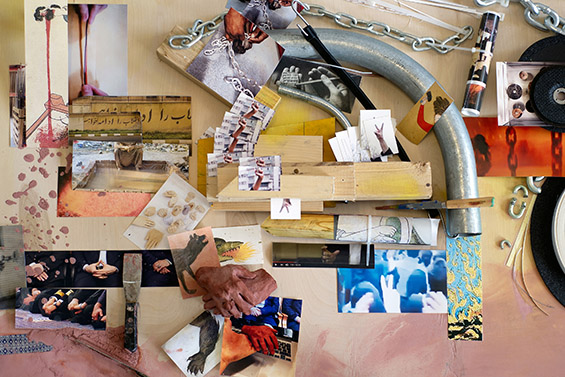Shahrzad Changalvaee
Adjunct Instructor
Shahrzad Changalvaee is an artist based in Brooklyn.Working across installation,sculpture, photography, performance and video, her practice responds to sculpture making. Her post-migration works are mainly generated through visual found/basic material and respond to the tension between language and physicality, as well as to the space between ‘wording’ and ‘making’. Through structures that are mostly temporal, fragile and fragmented, she constructs narratives that question local/global, information/anecdote, language/communication and alienism/exoticism.
Her exhibitions include In Absentia, In Effigie, The Chimney NYC, Brooklyn, (2019), The Understandables Always Arrive From Far Away, Soho20, Brooklyn, (2018), You Cannot The Same River Twice, O Gallery, Tehran, (2016), Shanghai Biennial, Shanghai (2015), Recalling the Future: Post Revolutionary Iranian Arts, Brunei Gallery, SOAS, UK, 2014.
Born in 1983, Tehran, Iran, Shahrzad remembers thinking about becoming a teacher on her very first day of school. She has taught courses and workshops in American University of Beirut, Yale School of Art, Caldwell University, SUNY and more. She received her MFA in Sculpture from Yale University in 2015, and her BA in Visual Communications from Tehran University in 2006. Shahrzad lives and works in Brooklyn.





